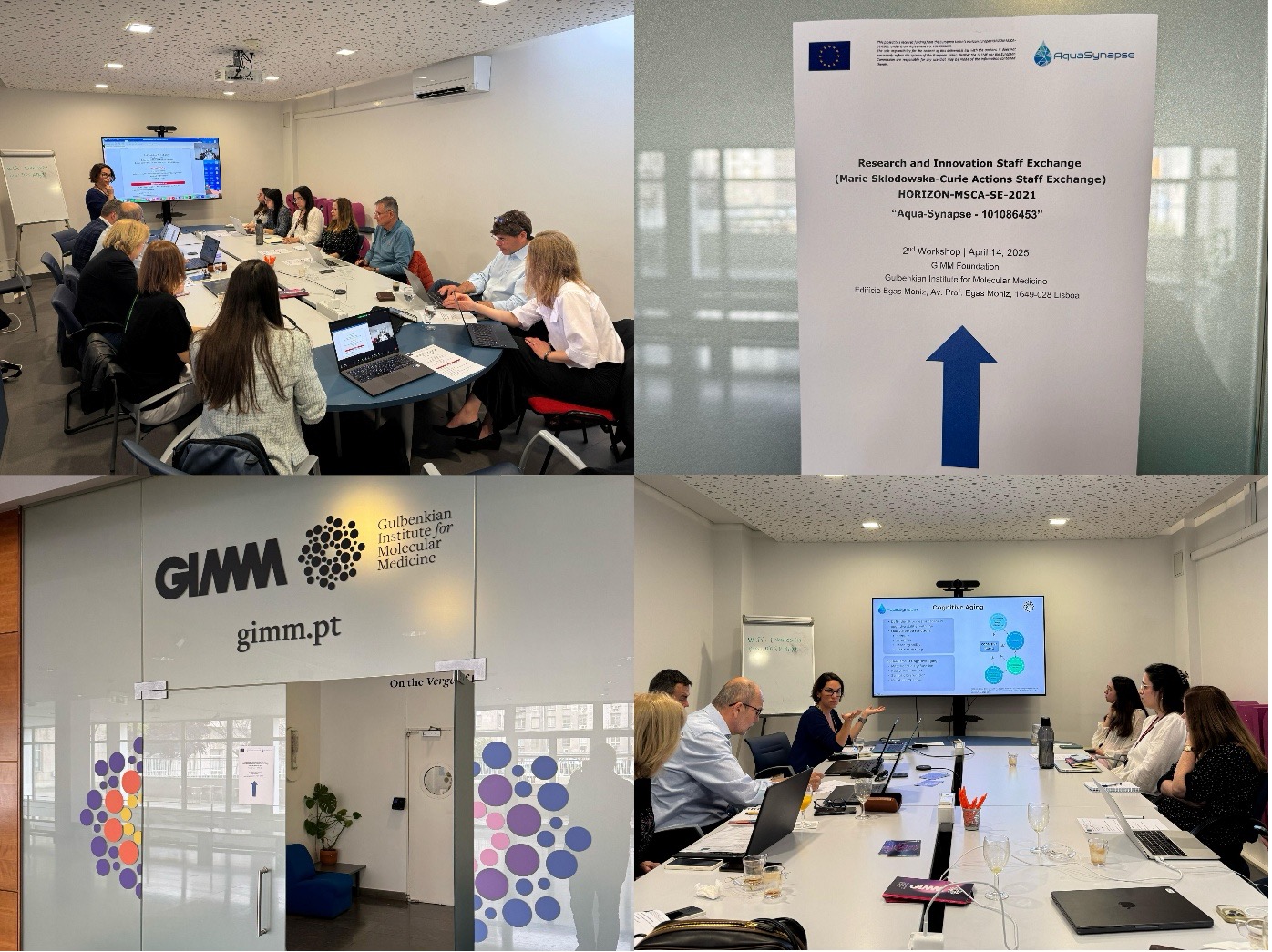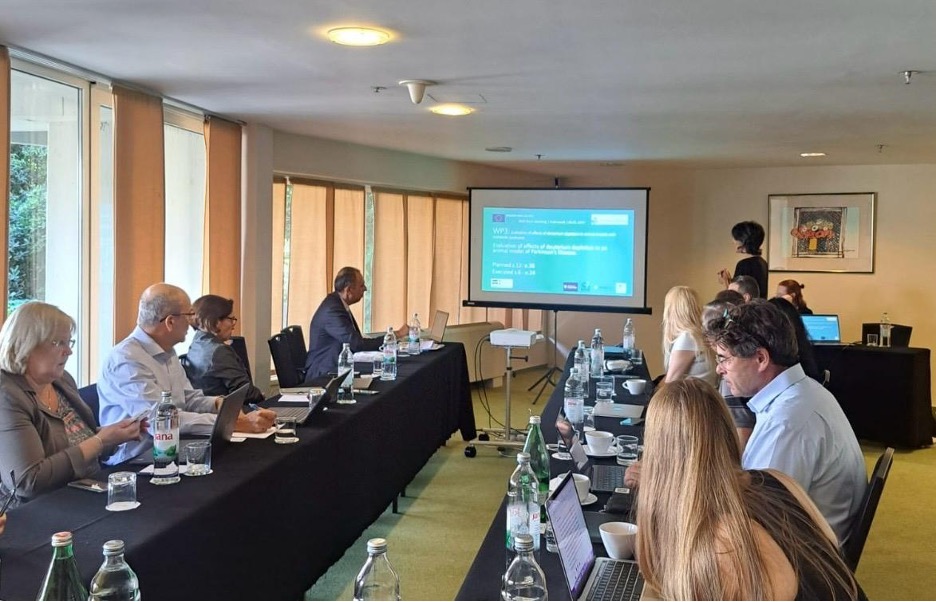Aqua-Synapse 2nd Workshop at GIMM Foundation in Lisbon
On April 14, 2025, the 2nd Workshop of the Aqua-Synapse
project was held in Lisbon, Portugal, at the GIMM
Foundation – Gulbenkian Institute for Molecular
Medicine. Aqua-Synapse is a project funded by the
European Executive Research Agency of the European
Commission and is coordinated by Professor Sergiy
Lyubchyk from Lusófona University.
The primary aim of this second workshop was to review
and discuss the progess and future perspectives of each
Work Package, following the conclusion of Reporting
Period 1 (RP1). The workshop featured detailed
presentations on the progress and resulsts of the
following Work Packages:
• WP1: Deuterium metabolic spectroscopy
and deuterium metabolic imaging
• WP2: The impact of deuterium on
excitatory/inhibitory (E/I) balance in a human neuronal
network model system
• WP3: Evaluation of the effects of
deuterium depletion in animal models of metabolic
syndrome
• WP4: Assessment of the impact of
deuterium depletion in animal models of aging
• WP5: Production of deuterium-depleted
and control water samples, and monitoring deuterium
content in experimental tissues
• WP6: Project management and
dissemination activities
Each Work Package leader presented the progress and
findings under their responsibility. The workshop
concluded with a roundtable discussion that fostered
knowledge exchange and strategic planning for the
project's next steps, including mobility, scientific
research and results, dissemination and communication
efforts, and the potential inclusion of a new company
into the consortium.
This workshop was organized by GIMM in collaboration
with ULusófona. All consortium partners were represented
either in person or online, including: Lusófona
University/COFAC (PT); University Hospital Würzburg
(DE); HYD LLC. for Cancer Research and Drug Development
(HU); Gulbenkian Institute of Molecular Medicine (PT);
University of Oxford (UK).LLC for Cancer Research and
Drug Development (Hungary).



